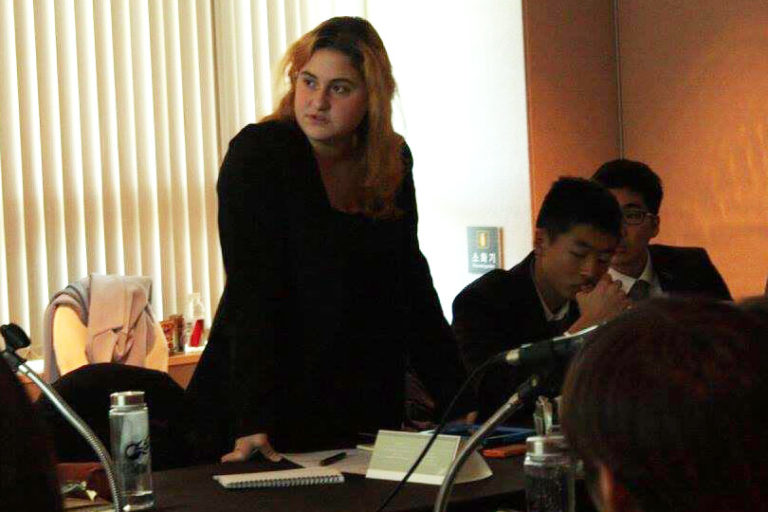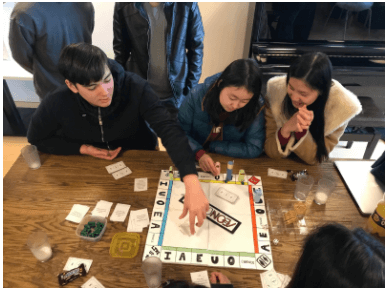 Written by James Earwood
Written by James Earwood
Mr. Earwood teaches G10 Humanities and IB Global Politics at UWC ISAK Japan.
Global Politics is a course offered at UWC ISAK that inspires students to analyze real world political issues through the lens of multiple perspectives. By doing so, students are able to grasp the complexity of global events, with the intent of developing understanding, empathy and action. Students study four core units—Power, Human Rights, Development, Peace and Conflict—through key concepts supported by theoretical frameworks and case studies. In addition to content, students are given the opportunity to work on political issues of interest through an engagement activity that encourages them to interact with a project of real political significance within their local communities. As the spring term commences, Grade 11 students will be busy planning their projects, which will be taking place this summer.
The past term, students have analyzed human rights through key concepts, such as liberty, equality and justice. They recognized the evolution of Human Rights through time and space, culminating in the Universal Declaration of Human Rights (UNDHR.) Most importantly, they have calculated critiques of the current Human Rights regime by investigating the concepts of cultural relativism and collective rights. Cultural relativism posits that communities create moral frameworks in which human rights should be interpreted and implemented, which contrasts with the notion of the universality of Declaration of Human Rights, applying to everyone due to our shared humanity. Similar to cultural relativism, collective rights recognize the rights of groups, as well as group interpretations of human rights. Collective rights challenge the Universal Declaration of Human Rights, for it focuses explicitly on the individual and tend to neglect the rights of communities, such as those of indigenous populations.
By exposing students to difficult questions concerning arguments challenging the current human rights regime, students are able to identify diverse perspectives and positions on key issues. Though I strongly encourage the universality of the Universal Declaration of Human Rights at UWC ISAK, challenging students to explore particular human rights issues through various viewpoints encourages understanding concerning global issues, which may first appear simple on the surface, yet become multifaceted as the issue is deconstructed. As with human rights, students discover that most political issues covered in the course are more intricate than they seem, which is one of the many reasons why I love teaching Global Politics here.





